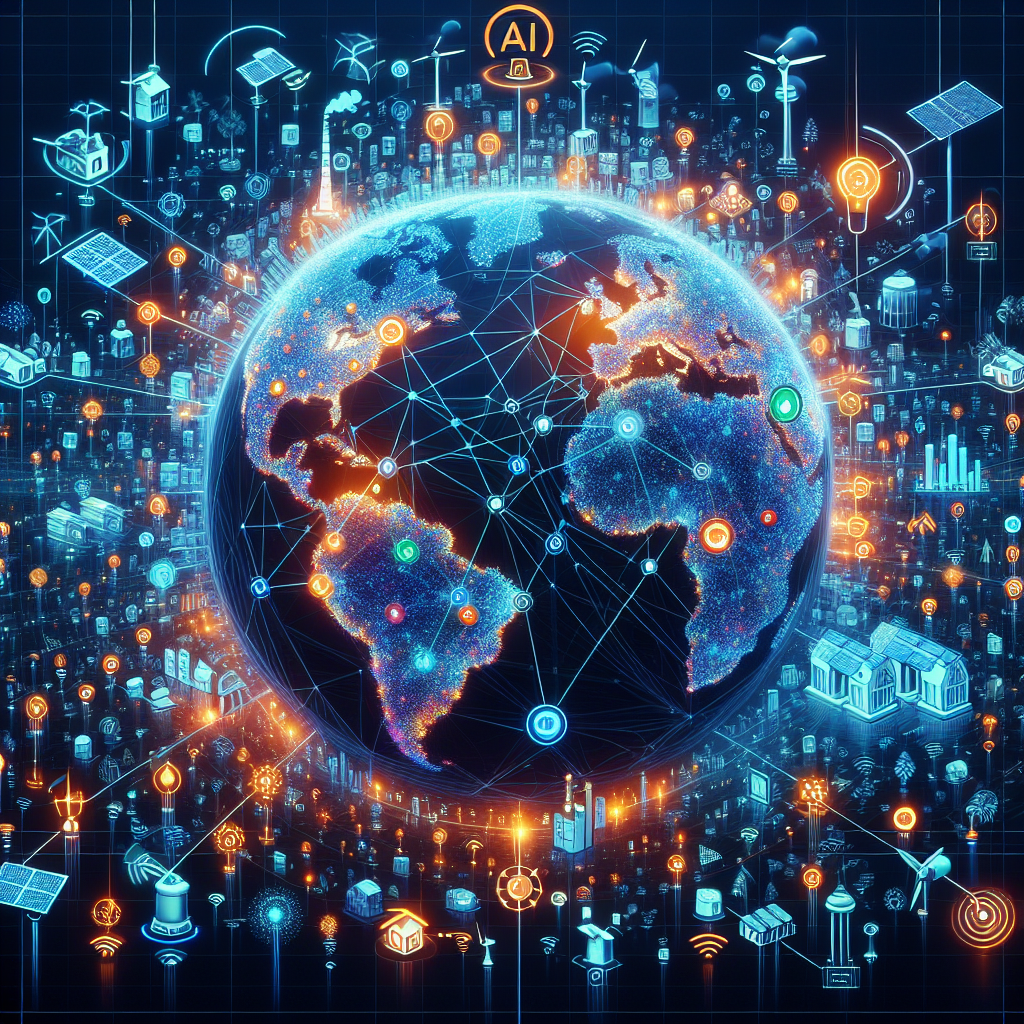“`html
Innovation Explored: AI in Energy Grid Management
Hey there! Have you ever wondered how our energy grids are managed and what’s buzzing behind the scenes? Well, you’re in the right place. Whether you’re a tech enthusiast or just someone curious about keeping the lights on, we’re here to explore how AI is shaking things up in energy grid management.
So, what’s the big deal with AI in energy grids?
Great question! Simply put, AI (Artificial Intelligence) can optimize energy grids by predicting demand, detecting faults, and managing resources more efficiently. Imagine a sophisticated conductor leading an orchestra, ensuring each piece (in this case, energy) flows smoothly. That’s what AI aims to do with our energy grids.
How does AI predict energy demand?
AI uses sophisticated algorithms to analyze data from various sources like weather forecasts, historical usage patterns, and even real-time social events. By crunching these numbers, AI can forecast when and where energy demand will spike. Cool, right?
Can AI really prevent power outages?
In many cases, yes! AI can detect anomalies or faults in the grid way faster than traditional methods. By identifying these issues early, technicians can address them before they lead to major outages. Picture AI as a vigilant guardian looking out for potential problems – that’s the level of protection we’re talking about.
Why should we trust AI with such a critical task?
That’s a fair point! Trust is crucial. AI systems are built on extensive historical data and continuously updated with real-time information. This allows for accurate and reliable decision-making. Plus, human oversight is always part of the equation, ensuring AI is a helpful ally, not an unsupervised decision-maker.
What are the benefits for the environment?
- Improved efficiency: AI helps reduce waste by matching supply closely with demand, which means less unnecessary energy production.
- Integration of renewables: AI can seamlessly integrate renewable sources like wind and solar, which are sometimes unpredictable, into the grid.
- Reduced emissions: More efficient grids lead to less reliance on fossil fuels, helping reduce overall carbon footprints.
Are there any challenges we should be aware of?
Absolutely! Like any technology, AI comes with its own set of challenges, including:
- Data privacy: Handling vast amounts of energy consumption data can pose privacy risks.
- Infrastructure upgrades: Implementing AI requires modern infrastructure, which can be costly and time-consuming.
- Technological dependency: Over-reliance on AI systems can make manual intervention difficult during unexpected system failures.
Wrapping up!
AI in energy grid management is more than just a tech buzzword—it’s a transformative tool that promises more efficient, reliable, and sustainable energy systems. While there are challenges to address, the potential benefits are too significant to ignore.
So, next time you flip a switch or plug in your device, remember there’s a good chance AI played a role in making that seamless energy flow possible. Isn’t it fascinating how technology can enhance even the most everyday parts of our lives?
“`
